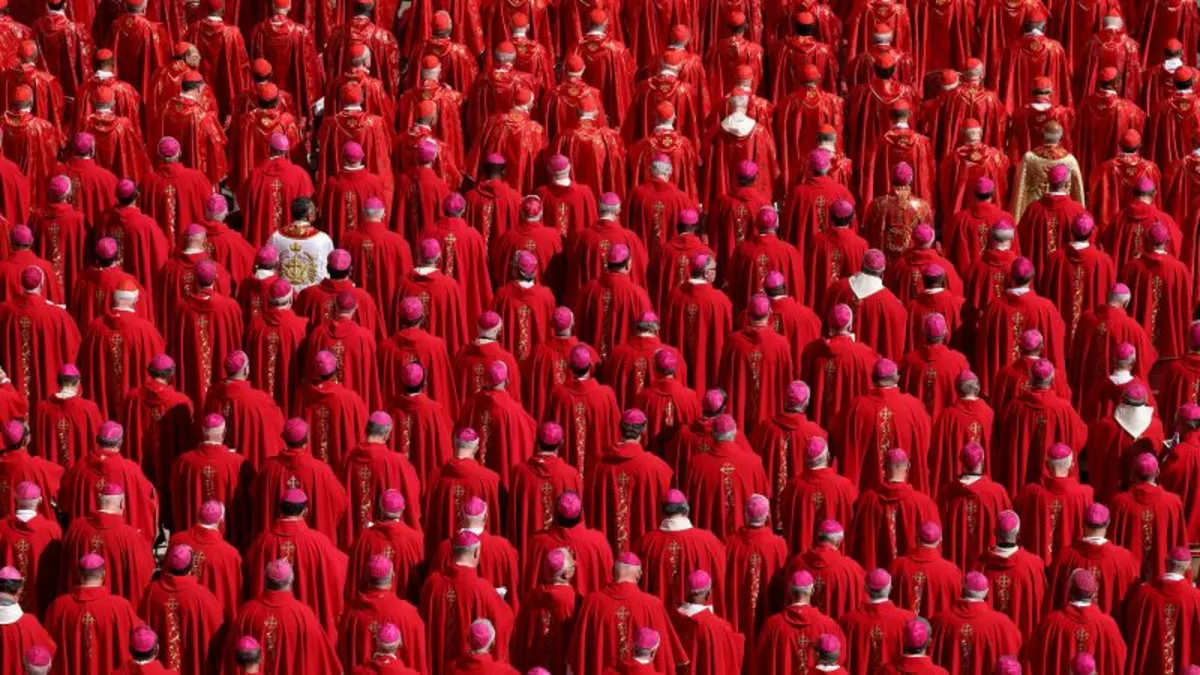
The pontificate of Pope Francis has profoundly transformed the landscape of the Catholic Church. Over the course of his dynamic 12-year papacy, he has championed the idea of a “poor church for the poor,” urging Catholicism to step out of its comfort zone and reach out to the most marginalized communities. His leadership has sparked conversations on topics that were once considered taboo, including the role of women within the Church.
Pope Francis has made headlines for his inclusive approach, famously welcoming LGBTQ Catholics as “children of God” and allowing remarried divorcees to receive communion. His emphatic critiques of economic inequality and passionate calls for environmental protection have resonated with many, but they have also provoked resistance from conservative factions within the Church. Small, yet vocal, groups have pushed back against his progressive reforms, while some bishops have remained indifferent or silently resistant.
As 133 voting members of the College of Cardinals prepare for the conclave to elect Pope Francis' successor, they face a significant decision: whether to build upon the late pope’s vision and reforms or to take a step back towards more traditional practices. CNN has gathered insights from multiple cardinals and church sources, revealing a split in opinions. Some cardinals advocate for a leader who prioritizes unity, while others warn that such a choice would be a “kiss of death” for the Church.
The outpouring of affection for Pope Francis following his death has not gone unnoticed. Cardinal Giovanni Battista Re, the Dean of the College of Cardinals, expressed admiration for Francis’ vision during his funeral homily, which was met with applause from the crowd in St. Peter’s Square. In East Timor, around 300,000 people attended a Mass in his honor, highlighting the profound impact of his leadership. Retired Cardinal Walter Kasper has urged his fellow cardinals to recognize that “the people of God have already voted” through their expressions of support for continuity with Francis' reforms.
The politics surrounding a papal election are intricate and nuanced. Cardinals must vote based on what they believe to be the will of God, without overt campaigning for the papacy. During the pre-conclave period, they gather daily for “general congregations” and often continue discussions in informal settings, fostering an environment for open dialogue. This has led to emerging fault lines within the College of Cardinals.
Some cardinals are calling for the next pope to embrace the diversity of the universal Church, which has shifted its center of gravity away from Europe. Others argue for a focus on unity, advocating for a more steady and predictable approach. Papal biographer Austen Ivereigh describes the divide as follows: those favoring diversity view Francis as a pioneer of a new era in the Church, while proponents of unity see his papacy as an interruption that needs to be corrected.
The leading candidate representing the unity perspective is Cardinal Pietro Parolin, the Holy See Secretary of State. While he may not represent a stark departure from Francis’ policies, his diplomatic approach is markedly different from the late pope’s. Critics, however, question Parolin’s grassroots experience and engagement with the faithful, indicating a potential disconnect.
Additionally, voices like Cardinal Michael Czerny, who has closely collaborated with Pope Francis, argue that focusing solely on unity risks falling into uniformity, which could stifle the Church's vibrancy. “If you make this your obsession, you end up with uniformity,” Czerny cautioned, advocating for a balance that respects both diversity and unity.
Throughout the nine days of mourning following Francis' death, cardinals have had the opportunity to reflect on his legacy during Masses. Many are contemplating how to carry forward the numerous reform initiatives initiated by Francis. Cardinal Baldassare Reina emphasized the need to consider the future of these reforms, recognizing Francis as a universal pastor.
Candidates who align with Francis’ reformist vision, such as Cardinal Mario Grech, who leads the synod office, and Cardinal Reinhard Marx, are also in the mix. The call for a “diversity” candidate, possibly from Asia or with strong ties to frontline missions, adds another layer of complexity to the selection process.
The College of Cardinals tasked with choosing the next pope is a diverse group that reflects the global Catholic Church, thanks in large part to Francis' efforts to appoint cardinals from countries previously unrepresented. However, this diversity poses challenges as many cardinals are unfamiliar with one another. As they enter the conclave, they will not only be voting for a new pope but also defining the Church’s direction for years to come.
Cardinal Charles Bo of Myanmar emphasizes the urgency for the next pope to pursue peace and serve as a moral authority amid global crises. He asserts that the next pope must embody a “new breath of hope,” signifying the vital role the papacy plays in addressing contemporary issues facing humanity.
Ultimately, the cardinals entering the Sistine Chapel are faced with a critical decision that will shape the future of the Catholic Church and its mission in a changing world. How they navigate the tensions between continuity and change will determine the legacy of the next papacy.